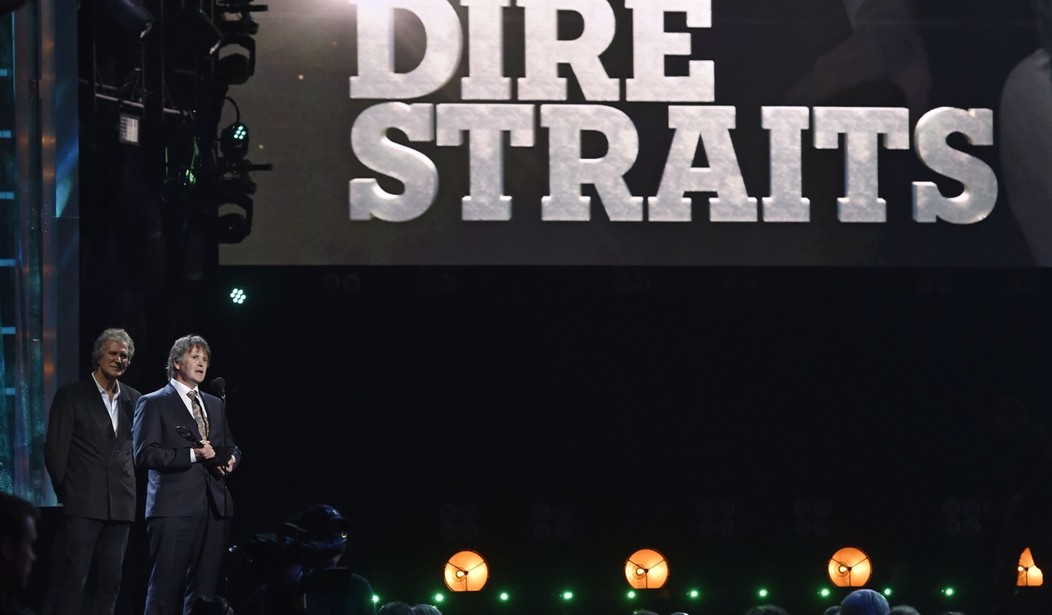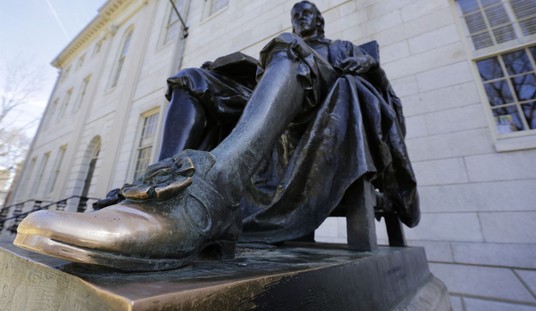It now seems that in newspapers, radio shows, cable news, and casual conversation, people daily crack a joke about, or else proudly and piously assert, the masked specter of “climate change.”
Do you suppose we could all turn back the clock and get a sense of mania from an earlier era?
Stratocaster-led Dire Straits released an album called “Love Over Gold” in September 1982.
In an effort to poke a little fun at current news culture and technology, the song “Industrial Disease” was penned and included on the album’s LP and cassette (and, later, on CD and streaming).
A lively, catchy tune, “Industrial Disease” is a nod to just about any troublesome public worry, from free speech, to tourism, to protest singing, to employee-management relations.
An existential concern, industrial disease is immune to reasoned discourse and indeed induces panic.
We hear these days how bad the weather is; in 1982, we feared Japan, that commercial giant, which threatened to take over the world with its Sony Walkman and other sophisticated gadgetry.
The dread in industrial disease reflected the malaise prevalent in the world following the 1970s and its many follies: price controls, oil embargos, and experiments in de-linking gold from currencies.
See, little did we know, in 1982, that Paul Volker’s monetary squeeze of high-interest rates would actually whip inflation during 1983 and lead to a great economic boom.
Raising interest rates, our present Federal Reserve Board of Governors seeks to revisit that success in hopes of a similar soft landing for commerce and industry; but this is an era of climate change.
One more early 1980s song of this ilk to investigate, “The Worry Song” by Joe Walsh, was released in October 1983 on the album “You Bought It – You Name It.”
Walsh worries about “big business” and “the Commies,” singing: “I worry about Afghanistan, I worry about the Poles; Oh if they drop the big one, will we all live in holes?”
The opus concludes, admonishing, “You don’t worry about it, I’ll worry about it – I’ll be up anyway!”
Risibly, Dire Straits and Joe Walsh had a sense of humor about their fatalist perspective.
Lamentably, many of today’s climate change acolytes take themselves far too seriously.
For instance, on July 7, 2023, I came across, in the Chicago Daily Herald, two truly wild sentences.
The sentences from “Turning up the heat” made a strange assertion “according to new data.”
“And then, on Monday came Earth’s hottest day in at least 125,000 years. Tuesday was hotter.”
It was bad. I could read no further.
Climate Change is bad. How bad is it? Climate Change is so bad that…
Eventually, the climate change canard will fade into obscurity, just as the Iron Curtain did in 1989, when “somebody blew the whistle and the walls came down.”
When climate change does reach its final end as a bugaboo, another boogaloo term will arise; for, like valley girl Valspeak, I am so sure that there is no cure for industrial disease.
What might this new scary bugbear be?
Let me be clear, following the science, and assert, as all experts agree, that we should consider the premise of the movie “Logan’s Run.”
In this 1976 film, people lived underground out of fear of the reputed destroyed condition of the Earth’s surface and atmosphere. Do Elon Musk and his tunneling machines make this future more likely?
Will “Toxic Fumes” or “Morlock Wells” become the new, irritating term during our time below ground?
Or, ought we feel great angst about the film, “When Worlds Collide,” and build a spaceship to carry a select few to the planet Zyra, which orbits Bellus – a star rapidly heading towards Earth?
Doubtless, this fear would vindicate our UFO cheerleaders crying “Hollow Moon” and “Alien Invasion!”
Maybe recent fads could reprise, like Snakes on a Plane or Sharknados; Blair Witch, anyone?
Of course, climate change itself is a revised, evolved version of earlier, thoroughly discredited terms: “global warming,” “acid rain,” “overpopulation,” “resource depletion,” “greenhouse effect,” “China Syndrome,” “deforestation,” “cow methane.” And the list, though finite, goes on.
How could a conservatarian better direct his energy and ideas to ease the cultural malarkey and piety derived from, engendered by, and deranged for orchestra for this climate change phantom?
Stringing wry, dry, inoffensive jokes together… an effective tactic?
Ought one take a sip of coffee each time the morning paper denotes the term?
Newspaper cutouts are still a thing, so might a person scan and save some crazy instances?
I guess that one could just ignore it and focus on the sports and leisure sections of the paper.
Climate change and its cultural cousins, “transgenderism,” “antiracism,” and going “wild in the streets,” will likely always be with us to a degree, in conversations with the masked, or virtually “e-masked.”
I propose to do my best to telegraph my concerns privately and to Keep Calm and Carry On.
Joseph Davis ([email protected]) is the head librarian at The Heartland Institute, a libertarian think tank located in Arlington Heights, Illinois.













